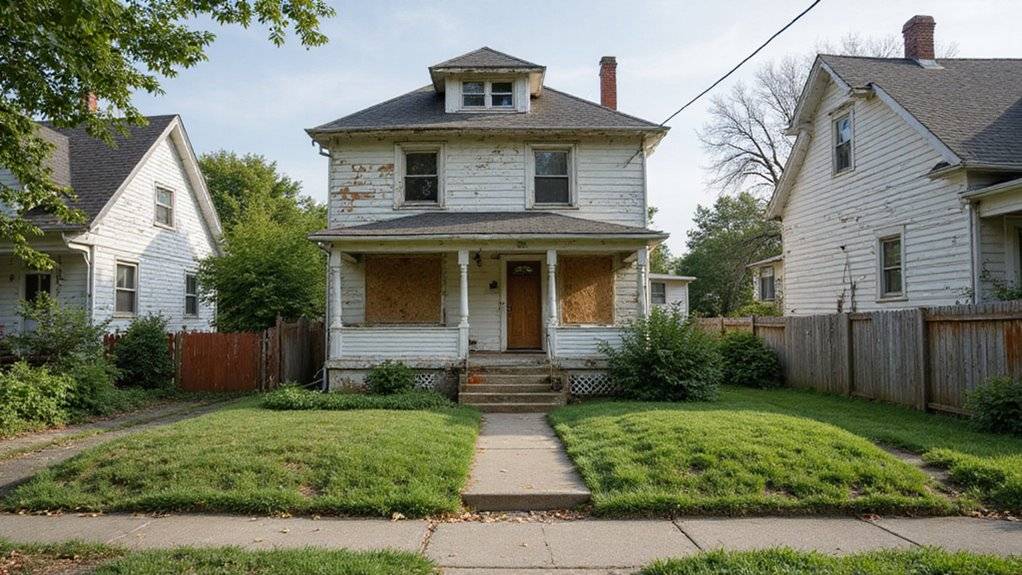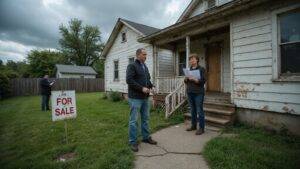Owning a home comes with many responsibilities, and one of the biggest is keeping your property up to code. Unresolved code violations can sneak up on homeowners and cause big problems when it’s time to sell. Many people do not realize how much these violations can affect property value.
Buyers worry about hidden costs, safety, and hassle when they see code violations. Lenders may also hesitate to approve loans on non-compliant homes.
This can lead to fewer offers and lower selling prices. Yes, code violations can significantly reduce your property’s value, sometimes by as much as 10–20%.
The good news is you can take steps to fix violations and protect your investment. Knowing how to handle these issues will help you get the best return.
This blog will guide you through understanding, addressing, and avoiding code violations to help maintain your property’s value.
Key Takeaways
- Code violations reduce property value by 10–20% due to increased repair risks and lower buyer confidence.
- Homes with unresolved violations are harder to finance and insure, limiting buyer options and decreasing demand.
- Violations must be disclosed by law, which can lead to price reductions or canceled sales if not addressed.
- Appraisers deduct estimated repair costs from property value, directly impacting the sale price.
- Properties with code violations spend more time on the market and attract fewer interested buyers.
Common Types of Code Violations in Residential Properties
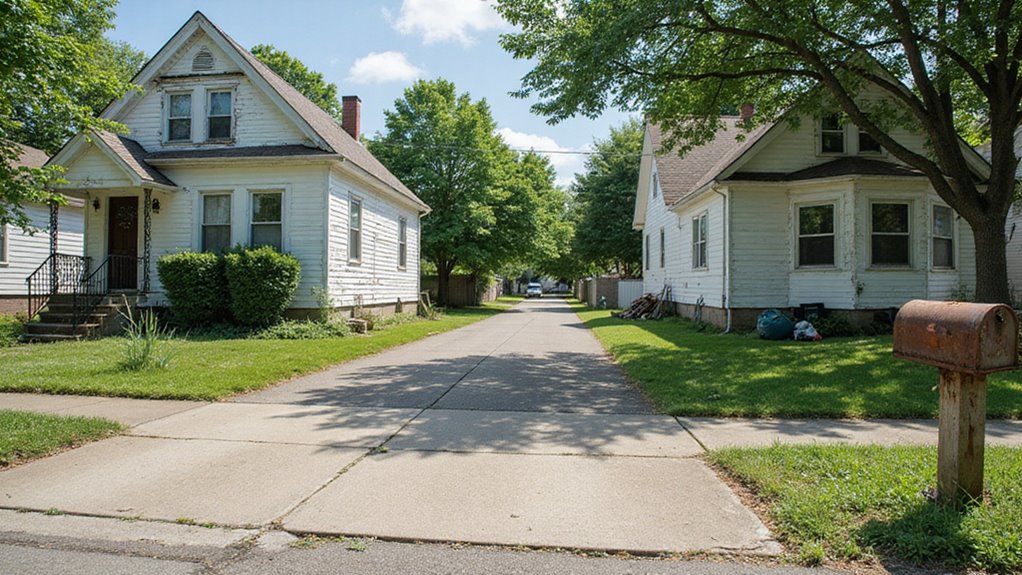
Overlooked maintenance issues often cause code violations in residential properties. If you neglect repairs, you increase the risk of violations. Fire safety and plumbing problems are the most common issues during inspections.
Missing smoke detectors and outdated wiring are frequent fire safety violations. Blocked exits also break fire codes and put people at risk. If you resolve these problems early, you protect your property and residents.
Many local sellers have found relief by working with trusted experts who can handle properties with multiple code violations. Address missing smoke detectors, old wiring, and blocked exits early to protect your property and keep residents safe from fire hazards.
Leaky pipes and bad drainage are common plumbing violations. Non-compliant water heaters can also lead to legal trouble. Local reports show 40% of code violations involve fire safety, while 25% are plumbing-related.
Regular inspections can help you find and fix issues quickly. If you act fast, you avoid bigger repairs and penalties. Keeping up with maintenance protects your investment and keeps everyone safe. When these code violations pile up and become too costly to fix, some owners may consider selling a house as-is to avoid expensive renovations.
Impact on Appraised Value
Code violations lower a property’s appraised value because they signal risk and extra costs. Appraisers look at safety, legal compliance, and repair needs. Any issues can make the property worth less.
Appraisers subtract the estimated cost to fix code violations from the property’s value. Lenders often need code compliance before they approve a loan. If a home has violations, fewer buyers may qualify for financing. Sellers can benefit from zero fees or commissions when working with buyers who purchase homes as-is, which may help offset some loss in value due to code issues.
Homes with code violations usually take longer to sell. Market research shows these properties often sell for 10–20% less than similar homes. Buyers see them as higher risk and less desirable. It’s important to review contract terms before selling a property with code violations to avoid legal complications.
Buyer Perceptions and Negotiation Power
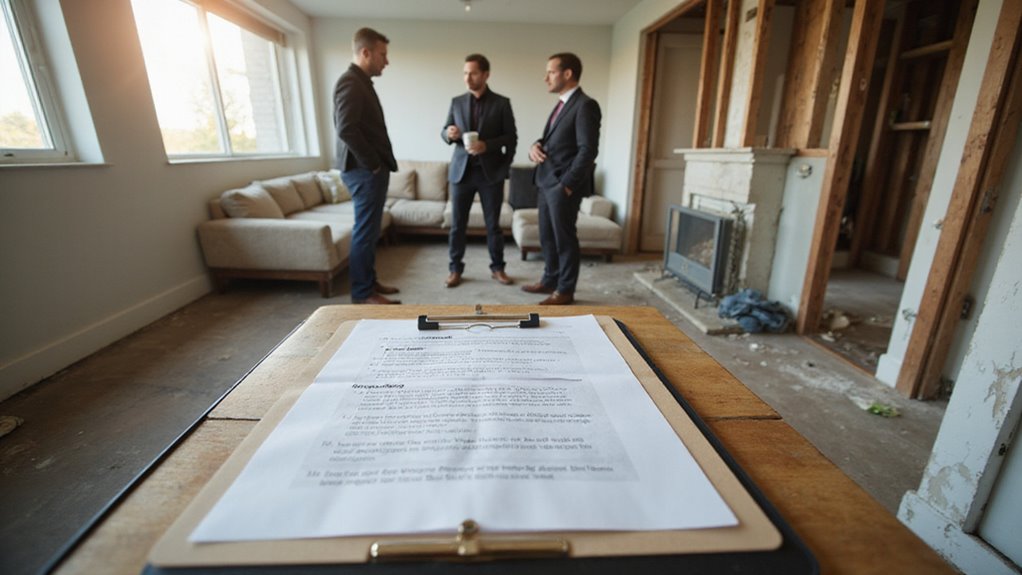
Prospective buyers see code violations as a warning sign. These issues lower a home’s value and make it less attractive. If buyers find violations, they may worry about other hidden problems.
Industry data shows homes with unresolved violations sell for 10–20% less than similar homes. Buyers use these problems to ask for price cuts or repair credits. They may also be less interested if the neighborhood has many violations. Sellers working with local North County, MO buyers benefit from direct offers that account for code issues, often resulting in a smoother transaction.
Sellers will face harder negotiations if their home has code violations. Buyers know they will have to fix these problems later. In a busy market, even small violations can give buyers more power.
Fixing problems before selling helps protect your home’s value. If sellers address violations early, they will have more control during negotiations. Working with local real estate market expertise can help homeowners navigate these challenges and get a fair offer despite code violations.
Lending Challenges and Mortgage Approval
When a property has unresolved code violations, you face a higher risk of loan denial, as lenders typically flag these issues as underwriting red flags. Appraisers often reduce property values by 10% or more to account for code defects, which can jeopardize your mortgage approval.
Foundation issues and other structural problems can further lower the home’s value by 10-15% and make lenders even more hesitant to approve loans. Addressing violations early helps you avoid costly delays and financing setbacks. Many cash home buyers in Florissant, MO are willing to purchase properties with code violations, offering sellers a fast and hassle-free alternative to traditional financing obstacles.
Loan Denial Risk Factors
Code violations can lower your chances of getting a mortgage. Lenders want properties to follow local rules. Any violations make loan approval less likely.
Banks see code violations as warning signs. If you have zoning or historic property issues, your risk increases. These problems can cause lenders to deny your loan.
Unresolved code violations often stop mortgage approval. Zoning problems can make a property ineligible for financing. Unapproved changes to historic homes may lead to automatic loan rejection.
Safety-related violations also hurt your chances. Lenders avoid properties with health or safety risks. If you fix violations early, you may protect your financing options.
Appraisal Value Reductions
Code violations can lower your property’s appraised value. Appraisers look for safety and code compliance, not just appearance or size. If they find violations, they may reduce the value by 10-20%.
Lenders use appraisals to decide if your property is safe for loans. Unresolved violations show possible risks or repair costs. These concerns make your property less appealing for mortgage approval.
If your home does not meet local safety codes, appraisers must lower their value estimates. This can affect your loan-to-value ratio and increase your interest rate. In some cases, you may not get mortgage approval at all.
Fixing code violations quickly helps protect your property’s value and financing options. If you address these issues, you improve your chances with lenders. Meeting safety standards keeps your home’s worth steady.
Insurance Implications for Non-Compliant Homes
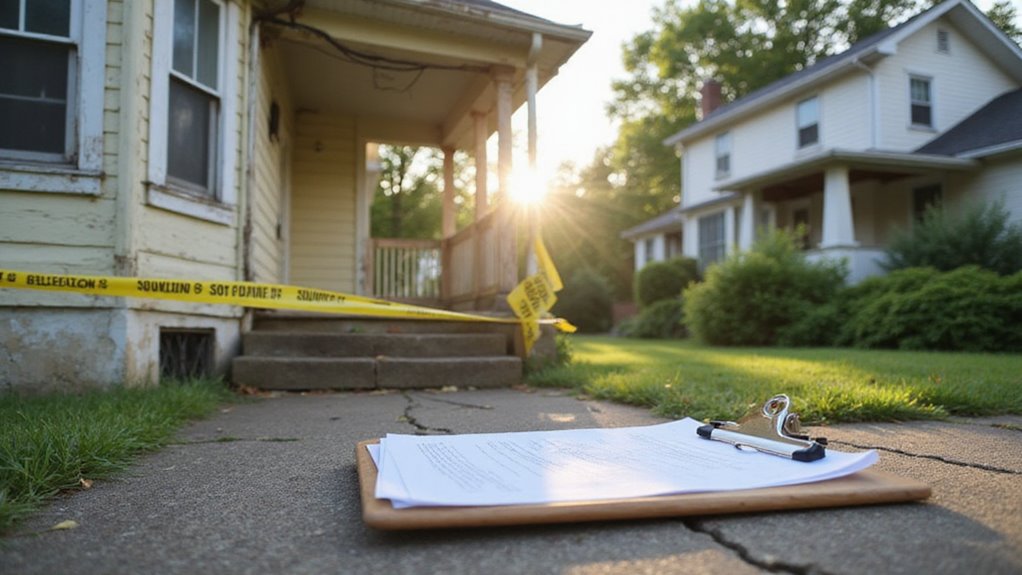
Insurance companies see homes with code violations as risky. If your home does not follow current codes, you may face higher costs or less coverage. Insurance claims could also be denied if the damage is related to these violations.
Insurers might not renew or issue a policy if violations are not fixed. Coverage may exclude losses caused by code violations. You could have to pay out of pocket for these repairs. Homes that have unresolved code violations may also affect your ability to qualify for certain homeowner tax exclusions if you decide to sell.
Premiums are usually higher for homes that do not comply with the law. Insurers need to trust that your property is safe. If they do not, they may limit or deny your policy.
If your home contains hazardous materials like asbestos, you may also need to disclose this information to insurers, as legal disclosure laws require informing both buyers and other parties about known risks.
Effects on Marketability and Time on Market
Code violations make it harder to sell a property and often increase the time it stays on the market. Buyers usually find these issues during inspections, raising concerns about safety and legal compliance. If violations exist, a home may take up to 25% longer to sell.
Lenders often refuse to finance homes with code violations, which limits the number of interested buyers. Fewer buyers can mean longer listing times and less competition. If buyers remain interested, they may offer less money or try to negotiate repairs. Working with local cash buyers can help sellers avoid lengthy financing delays and get a fair offer even if code violations exist.
Sellers lose bargaining power when their property has unresolved code issues. If you want a quick and smooth sale, you should fix violations before listing. Addressing problems early helps maintain your property’s value in a competitive market. You can also consider selling your house without an agent to avoid additional fees and streamline the home-selling process if code violations are present.
Cost of Rectifying Violations
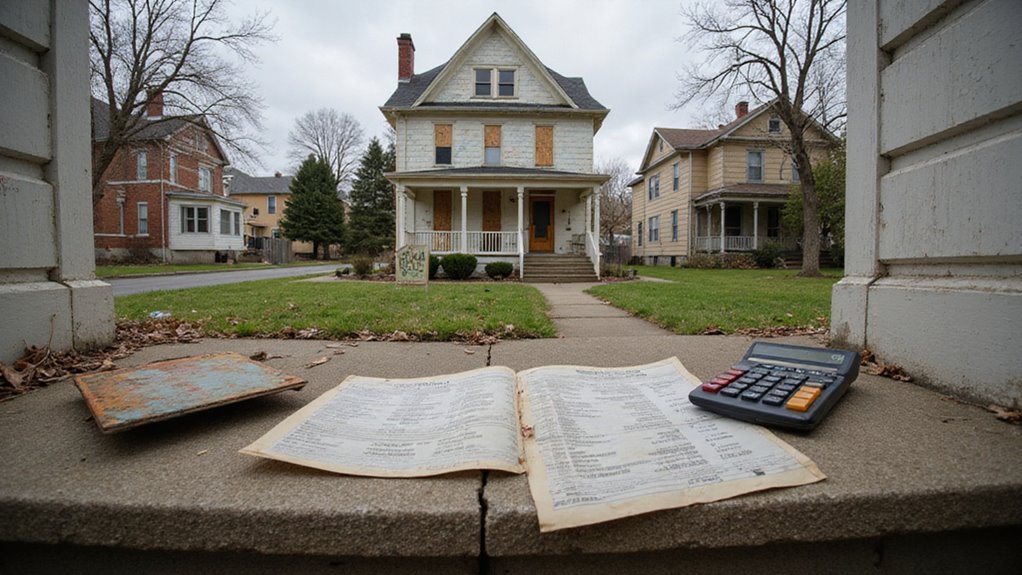
You need to account for both direct repair costs and the often-overlooked expenses of permits and inspections when addressing code violations. Industry data shows that permit and inspection fees can add 10–15% to your total remediation budget.
Accurate cost breakdowns are essential for assessing the true financial impact on property value. In addition, failing to account for state-specific disclosure requirements when addressing code violations can lead to unexpected legal expenses or complications during a sale. Choosing zero fees or commissions options when selling a property with code violations can help minimize additional financial burdens during the transaction.
Repair Expenses Breakdown
Repair expenses are the costs needed to fix code violations on a property. You must understand each expense to plan your budget. Accurate repair estimates help you comply with building codes.
Structural repairs may be necessary if there are foundation or framing issues. These repairs ensure the building meets current safety standards. If left unaddressed, structural problems can lower property value.
Electrical and plumbing systems often need updates to follow new codes. Outdated wiring or pipes may require replacement. You should check violation reports to identify specific repairs.
Interior finishes might include replacing unsafe floors, walls, or ceilings. If inspectors find hazards, repairs are mandatory. Proper finishes improve both safety and property appearance.
Exterior components like the roof, siding, or windows also impact compliance. Damaged exteriors may cause code violations. Prompt repairs prevent further issues and protect your investment.
Permit and Inspection Fees
Permit and inspection fees can add significant costs when fixing code violations. These fees are separate from repair expenses and must be included in your budget.
Permit fees usually start at $50 for small repairs. Major projects can cost over $2,000, depending on your city and the work needed.
Inspection fees often range from $100 to $500 for each visit. If your project involves electrical, plumbing, or structural work, you may need multiple permits and inspections.
If you skip these fees, you risk fines and project delays. Some municipalities may even force you to redo work, increasing costs. Always include permit and inspection fees when planning your project.
Legal Consequences and Municipal Penalties
Property code violations can lead to serious legal and financial problems for property owners. Municipalities take these violations seriously and pursue action quickly. If you do not resolve the issues, you may face several penalties.
Fines and fees can add up each day the violation remains. Some fines reach thousands of dollars over time. Municipalities may also charge extra for their enforcement costs.
Daily fines and enforcement fees can quickly escalate, sometimes reaching thousands of dollars if property code violations are not resolved promptly.
A lien may be placed on your property if the violation continues. This can make selling or refinancing your property difficult. The lien will stay until you pay all fines and fix the problem.
Legal action is possible when violations are ignored. Courts may order repairs or force the sale of your property. You could also be responsible for legal fees.
Insurance companies may raise your premiums if there are unresolved violations. Some may even cancel your coverage. If you lose coverage, your financial risk grows.
Ignoring violations puts your property investment at risk. Taking quick action can help you avoid these consequences. Always address code violations as soon as possible.
If you need to sell your house quickly due to code violations, working with trusted cash home buyers who purchase properties as-is can be an effective solution.
Disclosure Requirements When Selling
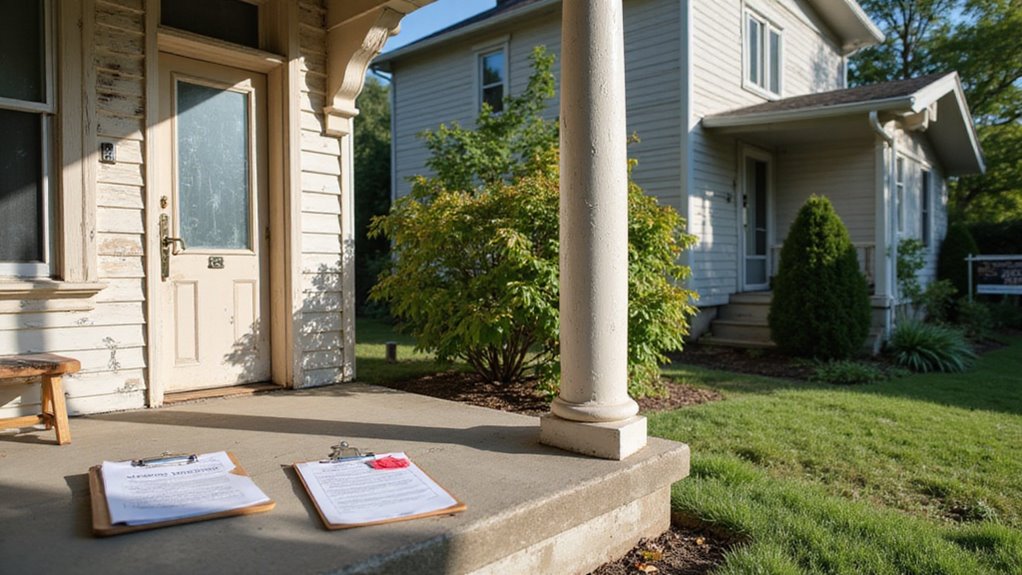
If you sell a property, you must tell buyers about any known code violations. Most states require you to give this information in writing. Buyers need these details to decide on the property.
If you hide code violations, you risk legal trouble. You could face lawsuits, canceled contracts, or financial penalties. Courts may also order you to pay buyers compensation.
Full honesty protects you during the sale process. Real estate experts suggest consulting with a lawyer about disclosures. If you are unsure about what to share, always disclose to avoid future disputes.
Code Violations and Investor Interest
Properties with code violations attract investors because they offer potential for profit with less competition. Investors who understand the risks and solutions can benefit more than regular buyers. If you have experience and resources, these properties can be valuable.
Sellers often accept lower prices due to violations, giving investors instant equity. These properties let investors add value by fixing problems and improving condition. If buyers resolve the violations, they can increase the property’s worth quickly.
Most homebuyers avoid properties with legal issues, so fewer people make offers. Investors with knowledge can talk to city officials to lower fines or speed up repairs. If you know how to handle these challenges, you can find hidden value in the market.
Impact on Homeowners Association (HOA) Relations
A property with code violations in a homeowners association (HOA) can cause problems with the HOA board. The board may take quick action to address these issues. Homeowners could face more attention and possible penalties.
HOAs are responsible for keeping the neighborhood looking good and maintaining property values. If violations are not fixed, the HOA might issue fines or take legal steps. These actions can make it harder for neighbors to trust each other.
Unresolved violations may lead to losing access to community features or voting rights. Some buyers may avoid properties with a history of HOA problems. This situation can make it harder to sell your home in the future.
Long-Term Risks to Property Equity
Unresolved code violations can lower your property’s value over time. Property equity may drop if you ignore these issues. Simple maintenance and quick fixes help protect your investment.
Homes with code problems often sell for much less. If you wait to repair damage, costs can rise by up to 30%. Lenders may also reject loan requests for such properties.
Legal problems may follow if violations continue. Fines and lawsuits can take away from your equity. Fixing issues early keeps your property’s value strong.
Preventative Measures for Homeowners
Homeowners can prevent code violations by taking simple, proactive steps. Learning about local building codes reduces the chance of costly problems. Staying informed helps avoid surprise repairs and keeps your home safe.
Regularly check important areas like electrical, plumbing, and structural systems. If you notice issues early, you can fix them before they worsen. Homes with current code compliance often have higher property values.
If you attend neighborhood meetings or workshops, you will learn about common violations in your area. Community involvement can help everyone stay updated. Keeping your property in good condition protects your investment and helps your neighborhood.
Working With Professionals to Resolve Issues
Some issues need trained professionals to fix them properly. If you face complex repairs, tenant arguments, or rule violations, experts can help. Unresolved problems may lower your property value by up to 20%.
You should hire licensed contractors for repairs that must meet local codes. If you do, your work is more likely to pass inspection. Contractors also know all safety rules.
If you have tenant disputes, consult a property manager. Property managers can help resolve arguments and enforce lease rules. They also reduce your legal risks.
If you do not understand local codes, engage a code enforcement consultant. Consultants can explain rules and help you comply faster. This helps you avoid fines or more violations.
When violations become legal issues, work with a real estate attorney. Attorneys give advice and represent you if needed. They protect your interests during legal disputes.
Using professionals helps you solve problems quickly and protect your investment. If you act fast, you can avoid losing property value. Always choose the right expert for your situation.
Conclusion
If you are considering selling your home, you should understand how code violations impact property value. These issues can lower your home’s price and make selling more difficult. If you address violations early, you can avoid many problems during the sale process.
If you choose to sell quickly, you may want to consider a cash sale. We buy houses for cash, even if they have code violations or need repairs. This option helps you avoid delays and extra expenses.
If you want a simple and fast solution, we can help. Freedom Path Investors can give you a fair cash offer for your property. Contact us today to learn how we can help you sell your home with ease.

